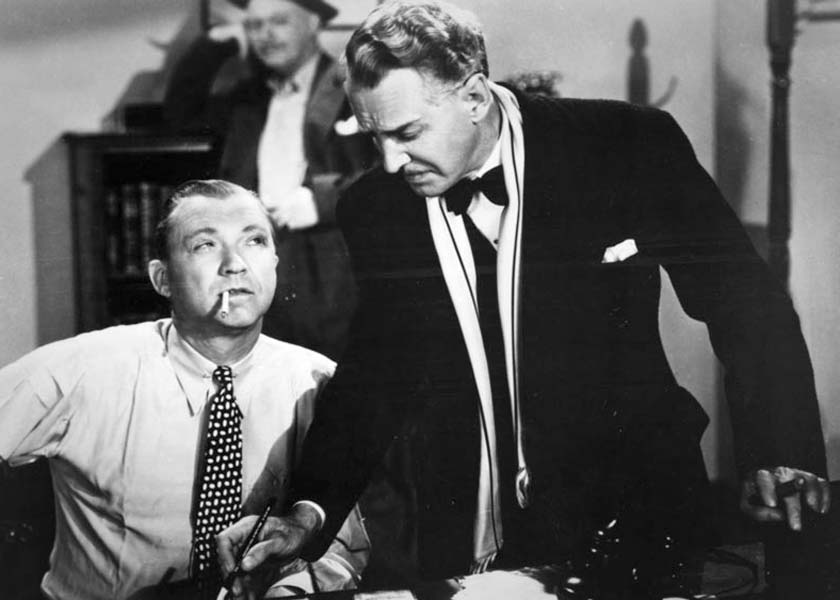Synopsis
John Cleveland Carter (Minor Watson), the editor and majority owner of the New York Gazette, is murdered before he can carry out his planned change in the editorial policy of his paper to a pro-war stance. The gunmen are employed by Howard Rankin (Kruger), the minority owner and manager of the newspaper, who intends to maintain the anti-war, anti-government policy of the Gazette.
Carter has willed his interest in the paper to Ulysses Bradford (Kibbee), an old friend and the editor of a small town paper. Encouraged by Edwina Stephens (Dickson), Carter's secretary, Bradford attempts to change the anti-war policy of the paper. Rankin and his henchmen frame a young former reporter who had spoken strongly against Carter and the policy of the paper. Griff Thompson (Tracy), the current editor of the Gazette, has backed Rankin because his stories have sold many copies. However, convinced that Rankin has gone too far in anti-war stories and in framing the young reporter, Griff joins Bradford. Together, they gain a confession from Rankin. Bradford delivers a strong statement about freedom and its responsibilities.
Discussion
Power of the Press, an inexpensive programmer (typically the bottom half of a double feature, alongside an A-level picture) produced by Columbia, features an inane screenplay — based on a story by Samuel Fuller — that gets across plenty of wartime patriotism and preaching about freedom and citizenship. The few sets are plain and cheap looking.
By 1943, the US was fighting World War II on two fronts, and films set at home, such as Power of the Press and A Stranger in Town, emphasized patriotism and the commitment of the population to the war effort. These films present situations in which some individuals are acting contrary to the interests of the country and use these transgressions to preach to the audience about their responsibilities as citizens.
Lee Tracy had a short period of stardom during the early-1930s before his drinking problem derailed his film career. Reduced to supporting parts in programmers, he looks aged and worn but turns in a dynamic performance.
Further Reading

